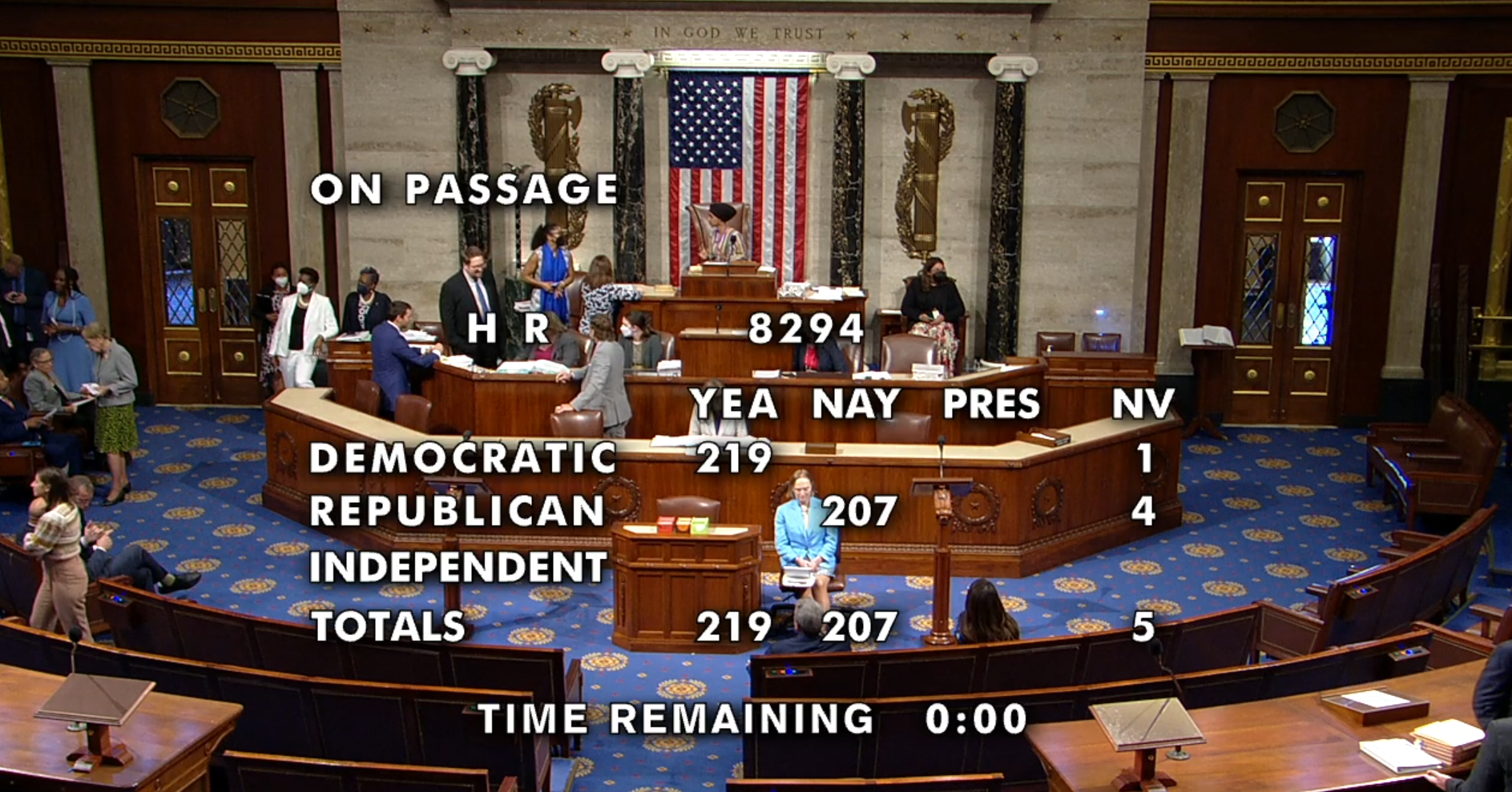
The full House this week passed a bundle of six appropriations bills that would provide roughly the request funding for Department of Energy nuclear weapons programs and, contrary to the will of House authorizers and President Joe Biden, keep the B83 nuclear gravity bomb in play.
The bill also provides the requested funding for the National Nuclear Security Administration’s (NNSA) planned plutonium pit production plants in New Mexico and South Carolina, though the South Carolina plant would get far less funding than both the full House and the Senate Armed Services Committee have authorized in separate defense authorization acts.
The Democrat-controlled House approved the appropriations bill on a straight party line vote, 220-207. No Republicans supported the measure, complaining among other things that Democrats did not accept Republican input on the overall spending limits set earlier this year for the 12 annual appropriations bills that will fund federal agencies for the fiscal year beginning Oct. 1.
The energy and water bill included about $21 billion for nuclear weapons programs at the National Nuclear Security Administration (NNSA), about $180 million short of the request but more than $750 million higher than the 2022 appropriation.
Most of the missing funding, relative to the request, is for maintenance across the nuclear security enterprise. In addition to the pit plants, all the NNSA’s major nuclear-weapon refurbishments would receive the funding the administration requested.
The spending bill would also allow the NNSA to continue maintaining the B83 megaton-capable gravity bomb the Biden administration wanted to cancel. Unlike the full House’s National Defense Authorization Act, the appropriations package would not permit NNSA to continue work on the sea-launched, nuclear-tipped cruise missile the administration wanted to kill.
For pits, the appropriations package has roughly the requested $1.5 billion for the Los Alamos Plutonium Pit Production Project in New Mexico and $758 million for the Savannah River Processing Facility. The National Defense Authorization Act passed by the full House last week, and one passed by the Senate Armed Services Committee in June, would each authorize hundreds of millions more for Savannah River.
Meanwhile, there was no meaningful debate about NNSA weapons spending on the House floor this week.
Prior to the start of the floor debate Tuesday, Rep. John Garamendi (D-Calif.), one of Congress’ leading progressive advocates for slowing nuclear-weapons spending, proposed an amendment to the appropriations bill that would have blocked the NNSA from using its 2023 budget to build a plutonium pit production factory in South Carolina.
The House Rules Committee, which in the lower chamber determines what is allowed on to the House floor, did not even admit Garamendi’s amendment to the debate.
Garamendi’s amendment — more of a statement piece than some of the language he has either gotten inserted, or failed to get inserted, into appropriations and authorization bills over the last several budget cycles — was the only one to touch directly on NNSA programs. During the House debate of the 2023 National Defense Authorization Act, almost a dozen defense-nuclear amendments made it to the floor for a vote.
Meanwhile, the Senate Appropriations Committee has said it will not publish its version of the 12 annual appropriations bills for 2023 until the end of July, which will leave only about a month for the chambers to either reconcile their inevitably different spending bills or extend the fiscal year 2022 budget under a stopgap continuing resolution.